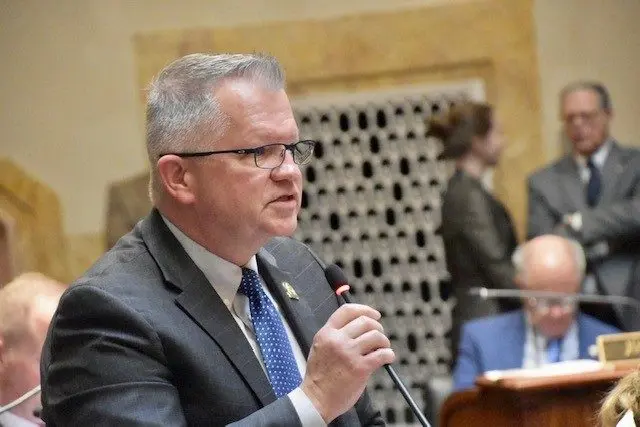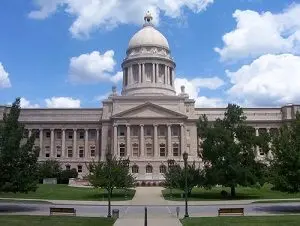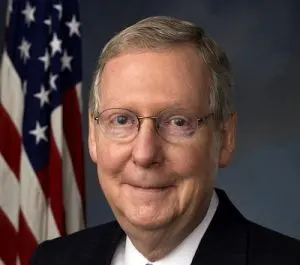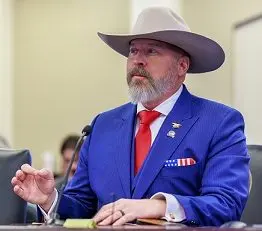
(FRANKFORT, Ky.)-Crafting a state budget is the most consequential responsibility entrusted to the Kentucky General Assembly. The document reflects the Commonwealth’s priorities and values, as well as providing a vision for the future. Every two years, lawmakers pass a spending plan that balances the competing needs of education, public safety, infrastructure, health care, and countless other services that touch the lives of every Kentuckian.
This responsibility is also a constitutional duty as the Kentucky Constitution gives only the General Assembly the authority to raise revenue through taxation and to determine how those funds are allocated.
The House’s approach to the budget is guided by a philosophy of stewardship. We are committed to ensuring that taxpayer dollars are spent wisely, responsibly, and with accountability. Members strive to balance fiscal discipline with the need to invest in programs that strengthen communities and provide opportunities for growth. That often means making difficult choices – funding what is essential, scrutinizing what is wasteful, and ensuring that Kentucky lives within its means while preparing for tomorrow’s challenges.
While the entire legislature will vote on the final spending plan, the document itself gets its start in the House Appropriations and Revenue Committee, which meets throughout the interim with its Senate counterparts to monitor current funding and consider future appropriations. The August meeting of the Interim Joint Committee on Appropriations and Revenue is particularly important because it is when members traditionally receive the year end report from the fiscal year that ends on June 30. At the panel’s August 20 meeting, members heard from the state budget director and legislative staff. According to their testimony, the Commonwealth ended fiscal year 2025 remarkably close to our budget estimates and with a surplus that boosted the state’s savings.
The year-end report shows that overall revenues totaled approximately $15.7 billion, which included approximately $131 million more than was necessary to implement all budget allocations. The legislature requires surplus funds to be placed in the budget reserve trust fund so that they may be used responsibly to benefit Kentuckians. We have made significant progress in strengthening its Budget Reserve Trust Fund, which used to be called the “rainy day fund” and is essentially state government’s savings account. Just a few years ago, the account was almost entirely empty, leaving the state vulnerable to economic downturns or unexpected emergencies. Through responsible budgeting, record revenues, and disciplined spending, lawmakers have built the fund to historically high levels. While there are some, the governor included, who want to see us raid this fund to create new programs and make state government bigger, this growth provides a critical protection for existing services like education, public safety, and health care during uncertain times. It also improves Kentucky’s financial stability, boosts its credit outlook, and helps safeguard taxpayers from sudden fiscal crises. In addition, we are able to take some of those funds and invest in our communities and people in meaningful ways. For example, last year we allocated $2.7 billion in one-time funds. Those investments included millions for water utilities, the Rural Housing Trust Fund, and local infrastructure and economic development projects.
A strong savings account also allows us to cut the state’s individual income tax in our effort to eliminate it entirely and leave more money in the paychecks of people who earned it – a powerful incentive to live and work here. As of January 1, 2026, the tax rate will fall to 3.5%, almost half of what it was less than a decade ago when we became the majority in the House.
As expected, that tax cut impacted revenue as approximately $2.5 billion remains with Kentuckians, who in turn get to save, invest, or spend it in their communities. While the individual income tax collections are down, we are seeing an increase in business tax collections. And, we are seeing gross payroll continuing to grow – which means a combination of Kentuckians being paid more, and more Kentuckians being paid.
Revenues earmarked for transportation funding came in at approximately $1.86 billion, which was slightly less than last year as a result of lowering the motor fuels tax (this is triggered by state law when gas prices hit a certain level). However, motor vehicle usage taxes set a record. The road fund also saw a surplus and $61.6 million was deposited in an account for state road construction.
Committee members also received an update on federal changes to the Supplemental Nutrition Assistance Program (SNAP), a federal program that helps low-income individuals and families buy food, commonly known as “food stamps.” A great deal has been made about changes to SNAP and Medicaid under H.R. 1, the President’s Big, Beautiful Bill. We are monitoring the impact the bill may have on Kentucky, including SNAP benefits. According to testimony, H.R. 1 includes a provision that emphasizes better accuracy in awarding and paying benefits by requiring states to share in the cost of SNAP if their error rates hit specific levels.
The goal is to lower error rates to improve accountability and efficiency. When eligibility and payment errors are under control, benefits go to families who actually qualify, protecting taxpayer dollars from misuse. H.R. 1 requires states with an error rate above 6% to pay a percentage. The higher the error rate, the more the state will be required to pay. Kentucky’s SNAP error rate for federal fiscal year 2024 was 9.1%, based on an annual benefits total of $1.252 billion. At 9.1%, the state could be responsible for 10% of the cost of SNAP, roughly $125 million. According to testimony, the state’s SNAP administrators are working to lower that rate before changes from H.R. 1 are implemented.
We will continue to monitor both state revenue and the costs associated with state programs as we craft the budget lawmakers will pass in 2026. Until then, if you would like to watch the committee meeting on YouTube, visit @LRC Committee Meetings. Materials provided to legislators on the committee are available on our website.
As always, I can be reached anytime through the toll-free message line in Frankfort at 1-800-372-7181. You can also contact me via email at Chris.Freeland@kylegislature.gov and keep track through the Kentucky legislature’s website at legislature.ky.gov.






